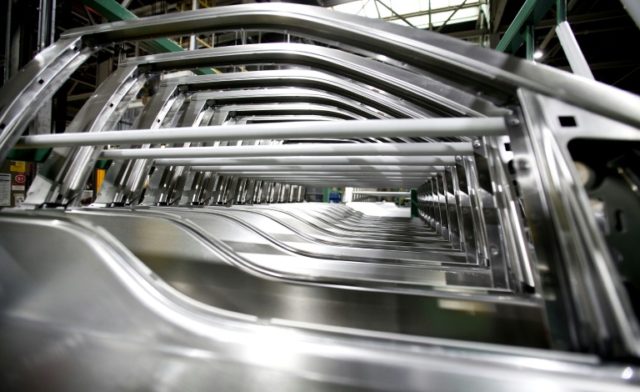Washington (AFP) – In its final days, the Obama administration on Thursday filed a trade complaint against China for using “artificially cheap” loans and raw materials to boost its aluminum industry at the expense of US competitors.
The actions were tantamount to providing subsidies that violate World Trade Organization rules, and caused “serious prejudice” to US aluminum companies, the US Trade Representative said.
They also flooded the world market with excess supply of the metal, driving down prices.
While the USTR touted its latest move as evidence it is protecting the rights of US companies — it is the 16th WTO complaint President Barack Obama’s administration has filed against China — it came a day after President-elect Donald Trump again charged that China “has taken total advantage of us economically.”
“Our trade deals are a disaster. We have hundreds of billions of dollars of losses on a yearly basis,” Trump said in his first press conference since his election.
“Hundreds of billions with China on trade and trade imbalance, with Japan, with Mexico, with just about everybody. We don’t make good deals any more.”
US Trade Representative Michael Froman acknowledged in a statement that despite years of talks with top officials in Beijing to raise concerns about the aluminum glut, nothing was done to correct it, prompting Washington to finally go to the WTO, the global trade referee.
“Artificially cheap loans from banks and low-priced inputs for Chinese aluminum are contributing to excess capacity and undercutting American workers and businesses,” Froman said in a statement.
Washington has won all 16 cases it has brought against China, which Froman said demonstrates the administration’s commitment to hold China to its trade obligations.
“When China cheats, we’ve been right there, securing recourse for our workers, farmers, ranchers and businesses.”
The USTR complaint says China appears to provide subsidies to certain aluminum producers in the form of artificially cheap loans from banks and artificially low-priced raw materials, such as coal, electricity and alumina.
Those policies damage US firms because of the “significant price undercutting, price suppression, price depression or lost sales in a given market, or through an increase in Chinese world market share.”
The first step in the WTO dispute process is for the governments to hold consultations. If the disagreement cannot be resolved, then a panel will review the case, a process that can take up to nine months.
If China is found to be violating trade rules, the WTO might authorize the US to impose punitive tariffs on Chinese goods to compensate for the damage caused by the illegal subsidies.
The USTR notes that even while aluminum prices were sinking, China was constantly building large new or expanded aluminum production facilities, boosting production 154 percent from 2007 to 2015, while global prices fell by approximately 46 percent.
During the same period, US aluminum production decreased by approximately 37 percent, even though US consumption increased. The number of US aluminum smelters fell from 14 in 2011 to five in 2016, with only one operating at full capacity.
However, the WTO does not have rules to address overcapacity of a product on global markets, so the USTR said it instead focused on measures it says constitute subsidies for China’s producers.
The USTR press release included statements from Democratic and Republican legislators praising the move to hold China to account.

COMMENTS
Please let us know if you're having issues with commenting.